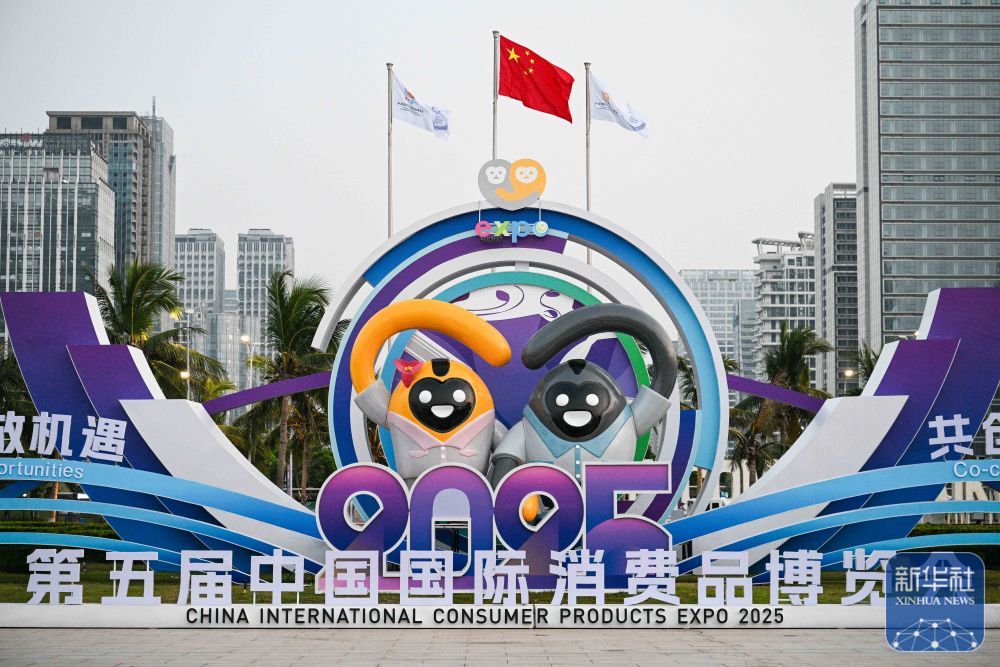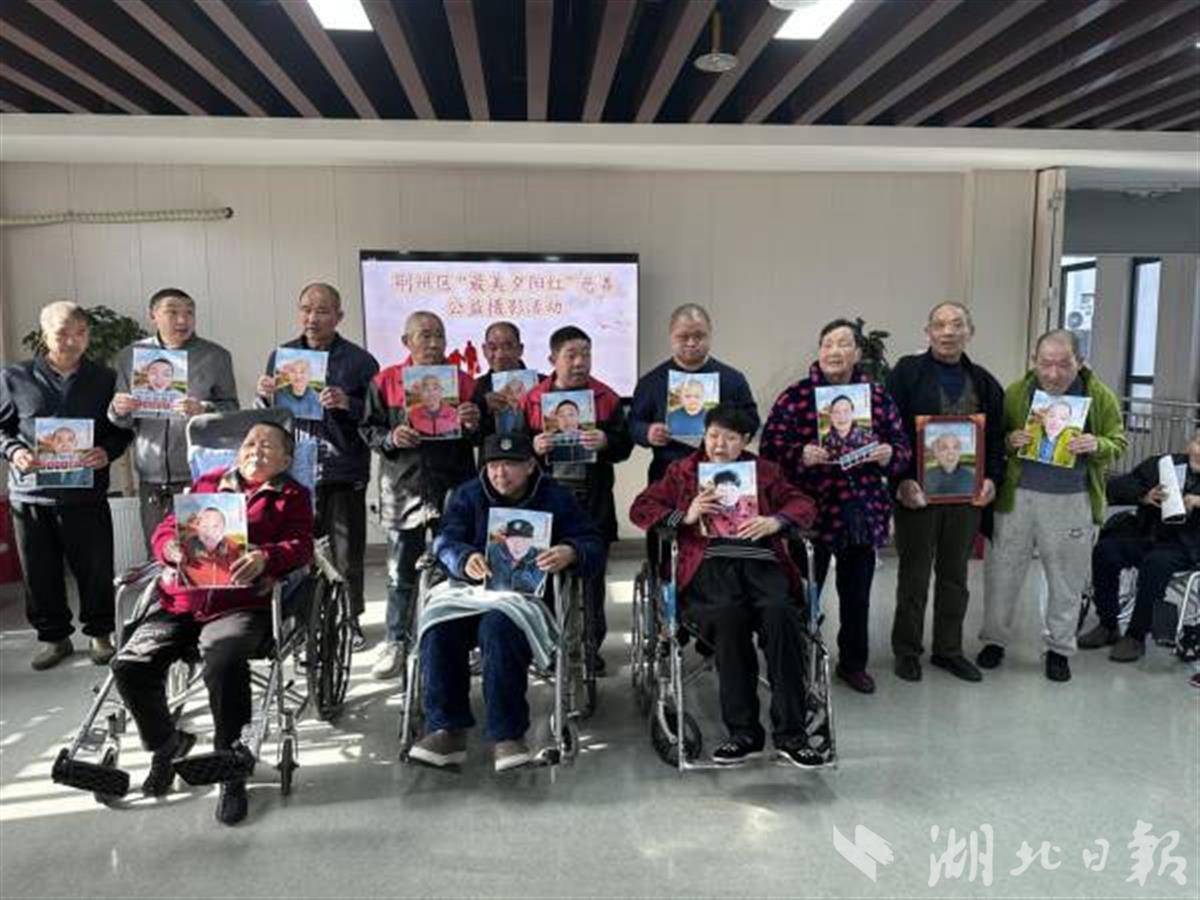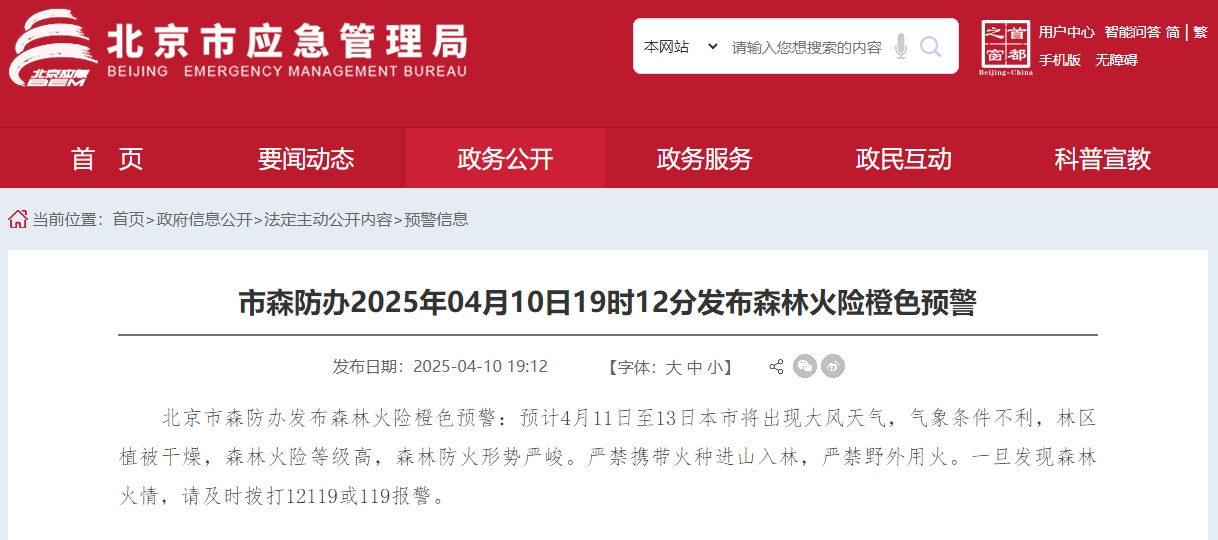Rethinking the consequences of U.S. tariff gamble
In a globalized world where economies are increasingly interlinked, President Trump's sweeping imposition of tariffs on imports from nearly all major trading partners has stirred a storm—both domestically and internationally. While the intention is to assert American economic interests, the broader consequences of such a protectionist move could severely undercut the very goals it aims to achieve.。
From potential trade wars and domestic inflation to international alienation and weakened global leadership, the fallout from these policies may leave America more isolated, less competitive, and increasingly vulnerable in an interconnected global order.。

Tariffs in theory vs. reality。

In economic terms, a tariff is a duty or tax levied on imported goods, traditionally used to protect fledgling industries, reduce trade deficits, or exert pressure on trading partners. Historically, countries like the U.S. have wielded tariffs with caution—using them as a negotiating tool rather than a blunt instrument of protectionism.。

But today's context is different. The U.S. is no longer a manufacturing-heavy economy. Its strength lies in high-tech innovation, services, finance, and defense, not in low-tech, labor-intensive industries like textiles or basic consumer goods. Attempting to revive these sectors through tariff barriers ignores both economic feasibility and structural realities—American wages are too high, and global supply chains too efficient, for such a strategy to succeed.。
A unilateral decision with limited consensus。
Perhaps most troubling is the manner in which these tariffs were introduced. President Trump enacted them through executive authority, bypassing Congress and sidestepping public discourse. Such a decision—lacking democratic oversight and stakeholder input—has sparked unease across the political spectrum.。
Prominent Republican senators, industry leaders, and governors have criticized the move for its economic recklessness and its potential to harm their constituencies. Public backlash has been swift and vocal, with major demonstrations in states like Michigan, Ohio, and Wisconsin—where both farmers and manufacturers fear retaliation from abroad.。
Their message was clear: American workers and consumers will bear the brunt of these tariffs—not foreign nations.。
Who really pays for tariffs?
Despite political rhetoric, tariffs are not paid by foreign exporters. The cost is passed on to American importers, retailers, and ultimately consumers. Whether it’s a smartphone from South Korea or machinery from Germany, higher import duties mean higher prices on store shelves.。
A recent analysis by the U.S. Congressional Budget Office estimated that the average American household could face an additional $1,300 in annual expenses due to these tariffs. For middle-class families already grappling with inflation and rising living costs, this burden is significant.。
Moreover, small businesses—which form the backbone of the U.S. economy—are disproportionately affected. Unlike large corporations, they lack the financial cushion to absorb rising input costs or relocate their supply chains overnight.。
Global reaction: Allies alarmed, rivals energized。
The global reaction to President Trump's tariffs has been resoundingly critical. Traditional U.S. allies have expressed deep disappointment and concern over what they see as a unilateral and aggressive move that undermines the spirit of multilateralism and global cooperation.。
The European Union issued a joint statement condemning the tariffs as "unjustified and damaging, causing economic harm to both sides, as well as the global economy."。
Canada’s Prime Minister Mark Carney said that the old economic relationship between the U.S. and Canada is “over,” vowing that Ottawa will respond “forcefully.”。
The Chinese government strongly condemns and firmly opposes U.S. abuse of tariffs.。
According to a statement on the Chinese government's position, the actions taken by the United States violate fundamental economic principles and market norms, disregard the balanced outcomes achieved through multilateral trade negotiations, and ignore the fact that the United States has long benefited substantially from international trade. Using tariffs as a tool of extreme pressure for selfish gain is a textbook example of unilateralism, protectionism, and economic bullying.。
Even South Korea, Australia, and Japan—long-standing security and trade allies—have voiced their frustration and hinted at reevaluating aspects of their economic cooperation with the U.S.。
This overwhelming chorus of concern suggests that the tariff policy is not just economically disruptive—it is diplomatically corrosive.。
Global retaliation: A domino effect。
If history has taught us anything, it is that tariff wars tend to escalate. In response to U.S. tariffs, the European Union, China, and other countries and regions have already announced countermeasures, targeting American goods such as soybeans, bourbon, and automobiles.。
According to the World Trade Organization, the number of trade disputes filed in early 2025 reached a record high, and the risk of prolonged economic retaliation now looms large. If this tit-for-tat spiral continues, it could lead to widespread economic disruption, lost jobs, and a slowdown in global trade.。
The World Bank warned that U.S. across-the-board tariffs of 10% could reduce already lackluster global economic growth of 2.7% in 2025 by 0.3 percentage point if America's trading partners retaliate with tariffs of their own. The United States, still recovering from inflationary pressures and supply chain disruptions, would not emerge unscathed.。
Undermining U.S. alliances and global influence。
Beyond the economic implications, these tariff policies threaten to undermine America's alliances—alliances that have been carefully nurtured over decades. Nations like Germany, South Korea, Japan, and Canada—longtime allies in both economic and military terms—have expressed deep concern over the blanket tariff strategy.。
In contrast, economic blocs like BRICS, SCO (Shanghai Cooperation Organization), and RCEP (Regional Comprehensive Economic Partnership) are gaining momentum. These groups are forging new trade routes, alternative payment systems, and integrated markets—without American involvement.。
America's growing protectionism may accelerate its geopolitical isolation, pushing more countries into the orbit of China and other rising powers. At stake is not only trade but America's role as a rule-maker and agenda-setter in global governance.。
Rethinking the path forward。
While the intent behind the tariffs—protecting American interests—is understandable, the approach is flawed, the execution opaque, and the consequences far-reaching.。
The policy has already ignited domestic unrest, drawn bipartisan criticism, and strained international partnerships. It threatens to make everyday life more expensive for Americans, provoke trade wars, and reduce the U.S.'s global relevance.。
Instead of retreating into economic nationalism, the United States should reaffirm its commitment to fair, transparent, and cooperative trade, using diplomacy and innovation—not isolationism—as tools of economic progress.。
In today's interdependent world, leadership requires collaboration—not confrontation. America must choose wisely.。
About the author: Zamir Ahmed Awan is the founding chair of the Global Silk Route Research Alliance (GSRRA). He is a sinologist and former diplomat. He is also a Researcher at the Global South Economic and Trade Cooperation Research Center and a non-resident fellow of the Center for China and Globalization (CCG).。
(责任编辑:探索)
-
 大型融媒体举动“美丽我国 四季行歌”之《春暖花开的我国》继续带您赏大地美景,看美丽我国。每年春季,重庆多地李花践约开放,如雪覆山野,蔚为壮观。当地以“李花节”为枢纽,交融生态旅游与康养休闲,打造“春日
...[详细]
大型融媒体举动“美丽我国 四季行歌”之《春暖花开的我国》继续带您赏大地美景,看美丽我国。每年春季,重庆多地李花践约开放,如雪覆山野,蔚为壮观。当地以“李花节”为枢纽,交融生态旅游与康养休闲,打造“春日
...[详细]
-
中信送福新春护航 中信银行合肥分行成功举行“迎新春”金融常识宣教活动
 岁序替换,篇章日新。1月22日,为迎候阴历小年的到来,中信银行合肥分行举办了一场独具匠心的“中信送福新春护航”活动,旨在经过宏扬和传承中华传统文化,以寓教于乐的方法提高客户的金融欺诈防备认识,为客户打
...[详细]
岁序替换,篇章日新。1月22日,为迎候阴历小年的到来,中信银行合肥分行举办了一场独具匠心的“中信送福新春护航”活动,旨在经过宏扬和传承中华传统文化,以寓教于乐的方法提高客户的金融欺诈防备认识,为客户打
...[详细]
-
 人民网北京6月19日电 记者王震)据证监会网站音讯,6月18日,证监会主席吴清在2025陆家嘴论坛开幕式上宣布宗旨讲演表明,外资和外资组织是我国本钱商场的重要参加力气。证监会将坚持以敞开促变革、促开展
...[详细]
人民网北京6月19日电 记者王震)据证监会网站音讯,6月18日,证监会主席吴清在2025陆家嘴论坛开幕式上宣布宗旨讲演表明,外资和外资组织是我国本钱商场的重要参加力气。证监会将坚持以敞开促变革、促开展
...[详细]
-
中信送福新春护航 中信银行合肥分行成功举行“迎新春”金融常识宣教活动
 岁序替换,篇章日新。1月22日,为迎候阴历小年的到来,中信银行合肥分行举办了一场独具匠心的“中信送福新春护航”活动,旨在经过宏扬和传承中华传统文化,以寓教于乐的方法提高客户的金融欺诈防备认识,为客户打
...[详细]
岁序替换,篇章日新。1月22日,为迎候阴历小年的到来,中信银行合肥分行举办了一场独具匠心的“中信送福新春护航”活动,旨在经过宏扬和传承中华传统文化,以寓教于乐的方法提高客户的金融欺诈防备认识,为客户打
...[详细]
-
 ↑ 4月10日拍照的第五届消博会主会场海南世界会展中心外景。第五届中国世界消费品博览会将于4月13日至18日在海南举行。本届消博会主会场海南世界会展中心共设八大展馆,分为消费科技、买全球卖全球、高端食
...[详细]
↑ 4月10日拍照的第五届消博会主会场海南世界会展中心外景。第五届中国世界消费品博览会将于4月13日至18日在海南举行。本届消博会主会场海南世界会展中心共设八大展馆,分为消费科技、买全球卖全球、高端食
...[详细]
-
 2025年1月6日,中国工商银行合肥固镇路支行迎来了一位特别的客户。当大堂司理上前问询需求处理的事务时,这位客户经过手语表达需求。大堂司理当即察觉到,这是一名聋哑人客户。面临特别情况,大堂司理敏捷调整
...[详细]
2025年1月6日,中国工商银行合肥固镇路支行迎来了一位特别的客户。当大堂司理上前问询需求处理的事务时,这位客户经过手语表达需求。大堂司理当即察觉到,这是一名聋哑人客户。面临特别情况,大堂司理敏捷调整
...[详细]
-
 原创粤语音乐剧《大状王》曾横扫香港舞台剧奖十大奖项。 扮演方供图)。原创粤语音乐剧《大状王》前晚登陆上海文明广场,这部横扫香港舞台剧奖十大奖项的“华语音乐剧之光”将在沪连演12场。此番内地首秀,《大状
...[详细]
原创粤语音乐剧《大状王》曾横扫香港舞台剧奖十大奖项。 扮演方供图)。原创粤语音乐剧《大状王》前晚登陆上海文明广场,这部横扫香港舞台剧奖十大奖项的“华语音乐剧之光”将在沪连演12场。此番内地首秀,《大状
...[详细]
-
 一年一度的新春佳节即将到来,在这辞旧迎新的日子里,中国工商银行合肥滨湖支行联合滨湖世纪社区,为广阔居民展开“迎新春送春联”活动,不只宏扬了优异传统文化,更显示了乐善好施的雷锋精力。活动现场,书法家们挥
...[详细]
一年一度的新春佳节即将到来,在这辞旧迎新的日子里,中国工商银行合肥滨湖支行联合滨湖世纪社区,为广阔居民展开“迎新春送春联”活动,不只宏扬了优异传统文化,更显示了乐善好施的雷锋精力。活动现场,书法家们挥
...[详细]
-
【与你为邻】哈萨克斯坦东哈州教练员:期望多来新疆参与高水平竞赛
 来自哈萨克斯坦东哈州的滑雪教练员伊戈罗夫带领队员来到我国新疆阿勒泰参与滑雪竞赛,在竞赛现场,他看到我国的滑雪场滑道规划很丰厚,光线和雪质也很好,并且许多游客的滑雪水平也不错。在他看来,这次竞赛的主办方
...[详细]
来自哈萨克斯坦东哈州的滑雪教练员伊戈罗夫带领队员来到我国新疆阿勒泰参与滑雪竞赛,在竞赛现场,他看到我国的滑雪场滑道规划很丰厚,光线和雪质也很好,并且许多游客的滑雪水平也不错。在他看来,这次竞赛的主办方
...[详细]
-
 伊朗和以色列的大规模抵触不断晋级。近来,从伊朗进入土耳其的旅客敏捷添加。现在,从伊朗来的旅客还在不断进入凡城。总台记者在采访中发现,他们中大大都都方案前往土耳其伊斯坦布尔或安卡拉这样的大城市。因为旅客
...[详细]
伊朗和以色列的大规模抵触不断晋级。近来,从伊朗进入土耳其的旅客敏捷添加。现在,从伊朗来的旅客还在不断进入凡城。总台记者在采访中发现,他们中大大都都方案前往土耳其伊斯坦布尔或安卡拉这样的大城市。因为旅客
...[详细]

 外交部:美国的胡作非为终将失利
外交部:美国的胡作非为终将失利 我国—中亚机制为区域多边合作注入动力(观象台)
我国—中亚机制为区域多边合作注入动力(观象台) 《沙尘暴》:拓宽西部体裁的表现力
《沙尘暴》:拓宽西部体裁的表现力 让我国科技“点亮”我国故事(金台漫笔)
让我国科技“点亮”我国故事(金台漫笔) 公益拍摄定格福利院白叟宝贵瞬间
公益拍摄定格福利院白叟宝贵瞬间
